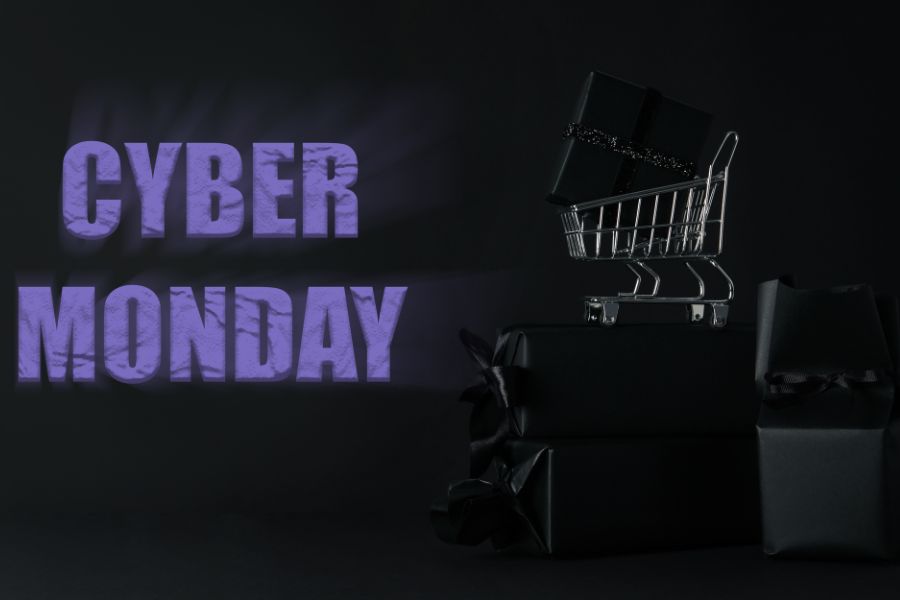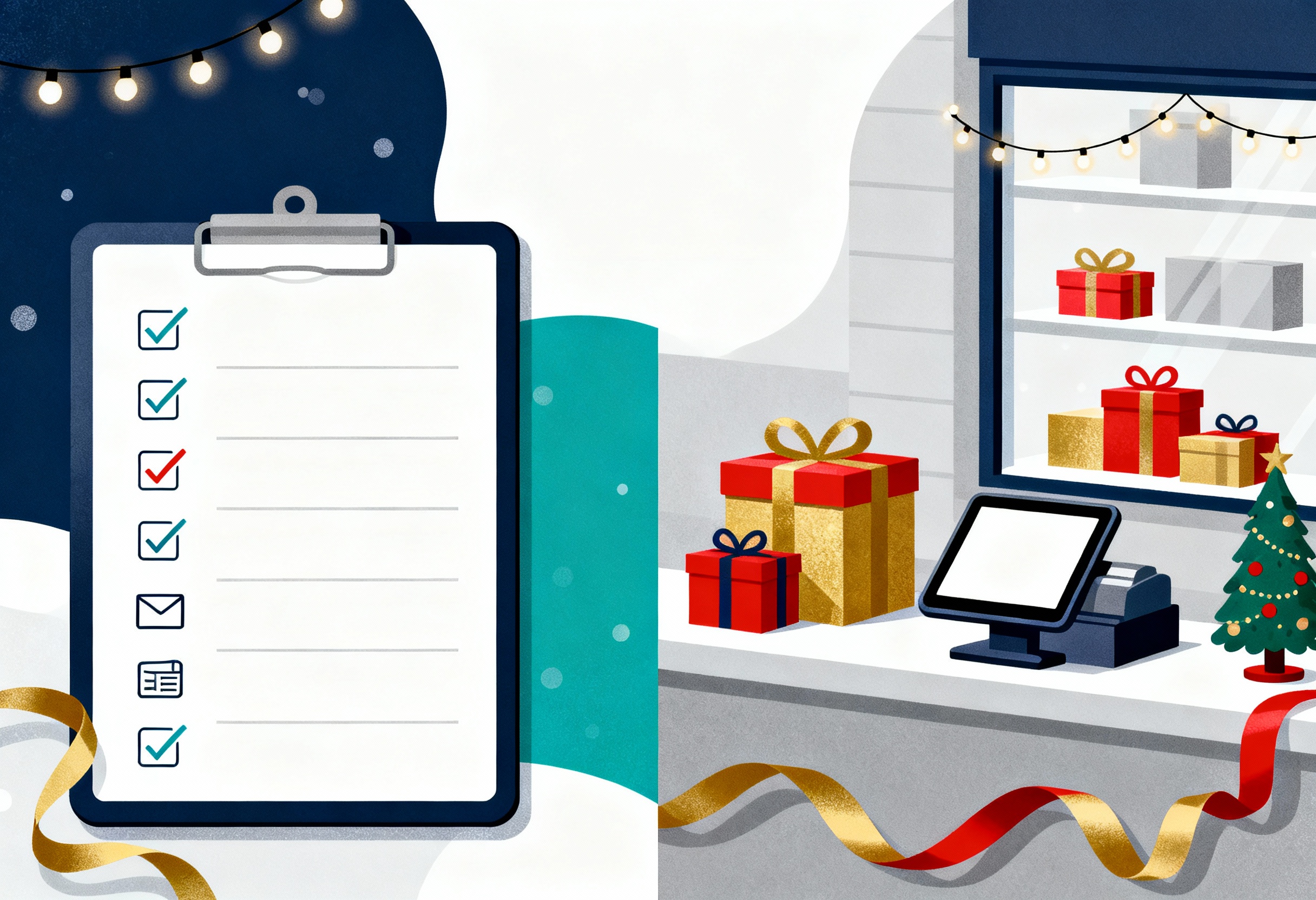As Black Friday and Cyber Monday 2026 approach, we understand retailers like you face the challenge of adapting to rapidly evolving trends. To overcome these challenges, you’d need to adopt effective strategies such as leveraging AI for personalized experiences, optimizing their omnichannel approach, and embracing the latest payment technologies. Proactively addressing supply chain issues will secure smoother operations during the peak shopping season. This article explores the 6 black friday cyber monday trends of 2026 and offers actionable insights to navigate these changes successfully.
Highlight:
- AI will improve shopping experiences by offering personalized product recommendations based on user behavior and preferences, driving sales.
- Eco-friendly products and sustainable practices will be crucial as consumers seek brands committed to environmental responsibility.
The Significance of Black Friday and Cyber Monday
Black Friday – Cyber Monday is undoubtedly one of the most significant shopping events of the year, especially in the U.S.. Nevertheless, their influence extends globally.
Black Friday
Black Friday refers to the Friday following Thanksgiving in the United States. While the specific date changes each year, it consistently occurs at the end of November and is widely recognized as the biggest shopping day of the year.
- Timing: Occurs the day after Thanksgiving in the U.S., marking the unofficial start of the holiday shopping season.
- Historical Background: The term “Black Friday” was popularized in the 1960s, initially by the Philadelphia Police Department, referring to the chaotic crowds and traffic that occurred as shoppers rushed to stores the day after Thanksgiving. Later, retailers embraced the term, associating it with moving from “in the red” (operating at a loss) to “in the black” (turning a profit).
- Significance: Traditionally, Black Friday has been a day for massive in-store sales, with retailers offering steep discounts to draw in customers. It often marks the highest retail traffic of the year. Over time, Black Friday has become a shopping event that garners attention beyond the U.S., with countries worldwide participating in similar sales. Adobe Analytics insights analyze over one trillion visits to U.S. retail websites, tracking 100 million SKUs across 18 product categories. The 2023 ICSC Post-Thanksgiving Weekend Survey includes two online surveys conducted on November 24 and November 27, 2023, with demographically representative samples of 1,007 and 1,004 U.S. respondents, respectively.
Cyber Monday
Following the tremendous success of Black Friday, new shopping events emerged, including Singles Day and, of course, Cyber Monday. Cyber Monday takes place on the Monday immediately following Thanksgiving in the U.S., exactly four days after.
- Timing: Cyber Monday occurs the Monday after Thanksgiving, designed as a counterpart to Black Friday, focused on online shopping.
- Historical Background: The term was coined by the National Retail Federation in 2005 to promote online sales during the growing age of e-commerce.
- Significance: Cyber Monday focuses on e-commerce, with retailers offering discounts on a wide range of products, often rivaling Black Friday deals. It allows consumers to shop from the comfort of their homes or on the go. According to Adobe Analytics, $38 billion in online sales for Cyber Week (5 days from Thanksgiving to Cyber Monday).
6 Key Black Friday Cyber Monday (BFCM) Trends in 2026 to Keep An Eye On
Here are 6 key trends every retailer should keep an eye on this BFCM season.
AI-Powered Personalization
Artificial intelligence (AI) continues to reshape the retail landscape, and BFCM 2026 is no exception. Consumers in 2026 expect hyper-personalized experiences, with 74% of them expecting more tailored interactions from brands. AI-driven systems now analyze real-time behavior, past purchases, and even external factors to create truly unique customer journeys.
Beyond the customer-facing experience, AI is transforming back-end operations. Retailers are using AI for predictive demand forecasting to prevent costly stockouts, for dynamic pricing to remain competitive, and for optimizing ad spend by creating highly specific lookalike audiences based on a customer’s lifetime value rather than a single purchase. This level of AI integration separates the winners from the rest of the pack.
►►► Optimal solution set for businesses: Multi store POS, Next-gen POS, Inventory Management Software (MSI), Self Service, Automation, Backorders

Sustainable Shopping Gaining Momentum
Sustainability has solidified its place as a core value for a large segment of consumers. In 2026, shoppers are not only looking for eco-friendly products but are also demanding transparency from brands. They want to know that a company’s commitment to the environment extends throughout its entire supply chain.
For BFCM, this means brands that can demonstrate a clear commitment to sustainability will stand out. This includes offering products with eco-friendly packaging, reducing waste, and promoting carbon-neutral shipping. New regulations are also putting pressure on retailers to be more transparent about their environmental impact, making this a business imperative rather than just a marketing tactic.
Omnichannel Shopping Experiences Are a Must
The distinction between online and offline shopping has all but disappeared. The modern shopper expects a seamless, integrated experience that allows them to research, purchase, and return items across multiple channels. Brands like Nike have nailed this by combining their physical stores with digital touchpoints, such as mobile apps and online inventory checks, providing a frictionless shopping experience.
In 2026, the most effective omnichannel strategies will include a focus on mobile-first experiences and hybrid fulfillment. Mobile accounted for a significant portion of online orders during the last Cyber Week, making mobile site speed and responsiveness critical. Additionally, services like “Buy Online, Pick Up in Store” (BOPIS) have become a standard, easing last-mile delivery pressure for retailers while offering shoppers maximum convenience.
Exclusive, Limited-Time Offers Driving FOMO
The fear of missing out (FOMO) is still a powerful psychological trigger, but the tactics have become more sophisticated. In 2026, limited-time offers and exclusive deals will still create urgency, but they will be more personalized and data-driven.
Retailers will use loyalty programs and member-only deals to reward their most valuable customers with early access to sales. This not only drives impulse buying but also builds a sense of community and brand loyalty. Not only that, the holiday shopping season itself is starting earlier, with many consumers beginning their gift search as early as October to take advantage of spread-out deals, so planning a prolonged, strategic campaign is key.
Live Shopping and Social Commerce on the Rise
While many shoppers continued to use Google tools like Search, Maps, and YouTube for product information, 65% relied on social media platforms. Social media also emerged as the third most popular channel for discovering new products, attracting 27% of consumers’ attention.
In BFCM 2026, social commerce is anticipated to see substantial growth, fueled by the rising use of social apps for business discovery, especially among younger consumers. Platforms like TikTok and Instagram are becoming key destinations for discovering new products and businesses, particularly for Gen Z. These platforms serve as trend hubs for fashion, beauty, food, crafts, self-care, and DIY projects.
Social commerce has graduated from a product discovery tool to a direct sales channel, and live shopping is the primary driver of this evolution. While social media continues to be a go-to for product research, the U.S. social commerce market is projected to surpass $90 billion in 2025.
The rise of shoppable videos and live stream events, especially on platforms like TikTok and Instagram, is transforming the BFCM experience. These live events capitalize on the FOMO effect by allowing for real-time interaction, Q&As, and exclusive deals that are only available for a short time. This creates a highly engaging and interactive shopping experience that a static product page can’t replicate.
Buy Now, Pay Later (BNPL) Expanding Further
The popularity of Buy Now, Pay Later (BNPL) options continues to rise, providing shoppers with more flexible payment choices. More retailers are adopting BNPL to attract budget-conscious consumers. For the last holiday season, spending on BNPL grew by 8.8% year-over-year. Brands like ASOS have already seen success by offering BNPL through services like Klarna, increasing their customer base by making large purchases more accessible.
In 2026, BNPL is not just for large purchases anymore. Consumers are increasingly using it for smaller, everyday items to manage their budgets, a trend driven by ongoing economic pressures. By offering BNPL services, retailers can attract budget-conscious shoppers and potentially increase their average order value.
Preparing Early for BFCM 2026
Getting ahead of the BFCM rush is critical for success in 2026. Early planning allows retailers to fine-tune their marketing strategies, ensure adequate inventory, and secure the best deals with suppliers. Preparing early enables businesses to avoid last-minute hurdles and capitalize on early promotional opportunities, helping them secure a greater portion of consumer spending.
Reviewing past BFCM performance is key to optimizing future campaigns. Analyzing sales data, customer behavior, and marketing effectiveness allows retailers to pinpoint successful strategies and areas for improvement. This data-driven approach helps optimize promotions, adjust inventory according to demand patterns, and better target key customer segments, ultimately leading to higher conversion rates during the BFCM period.
Why ConnectPOS Is Built for Black Friday & Cyber Monday Performance
Black Friday and Cyber Monday push retail systems to their limits – high traffic, rapid sales velocity, and increased pressure on inventory accuracy. ConnectPOS is built to handle exactly that. As an omnichannel POS system, it bridges online and offline operations, giving retailers the control and insights they need to perform under pressure.
- Real-Time Inventory Management: Track inventory across all locations in real-time. Whether stock is moving online or in-store, your team stays updated, reducing the risk of overselling or stockouts.
- Multi-Location Support: Manage inventory and sales across multiple stores or warehouses from a single dashboard. This is especially useful for retailers with pop-ups or temporary BFCM outlets.
- E-commerce Integration: ConnectPOS integrates directly with major platforms like Shopify, BigCommerce, and Magento, syncing product, order, and customer data without delay.
- Advanced Reporting for Smarter Planning: Use historical data and BFCM performance metrics to forecast demand, set inventory thresholds, and design targeted promotions that convert.
- Custom Promotions at Checkout: Push discounts, bundles, or time-limited offers through the POS in real time, letting staff apply campaigns that match your BFCM strategy, without manual updates.
- Offline Mode for Uninterrupted Sales: Keep sales going even if your internet connection drops. Transactions sync automatically once you’re back online, so nothing gets lost during peak hours.
- Faster Checkout With Mobile POS: Deploy mobile POS devices in-store to reduce lines and speed up transactions, especially helpful when serving a large volume of walk-in traffic.
FAQs: Black Friday Cyber Monday trends
- What Are the Key Differences Between Black Friday and Cyber Monday?
Black Friday, the day after Thanksgiving, focuses on in-store deals and has historically been the biggest shopping day of the year. Cyber Monday, occurring the following Monday, is centered around online sales and tech discounts.
- How Can Small Retailers Compete During BFCM?
Small retailers can effectively compete during Black Friday Cyber Monday (BFCM) by leveraging their unique strengths and adopting strategic approaches. First, offering personalized and exclusive deals can create a distinctive shopping experience that attracts customers. Additionally, utilizing social media for targeted marketing helps reach specific audiences and drive traffic to their online stores. Small retailers should also focus on building a strong online presence with an easy-to-navigate website and optimized mobile shopping experience to capture impulse buys.
- What Are Some Common Mistakes Retailers Make During BFCM?
During Black Friday Cyber Monday (BFCM), retailers often fall into several common traps that can undermine their success. One major mistake is inadequate inventory planning, which can lead to either stockouts or surpluses, causing lost sales or excess unsold goods. Additionally, retailers frequently neglect to optimize their websites for the surge in traffic, resulting in slow loading times or crashes that frustrate customers and lead to lost opportunities. A poorly defined marketing strategy also hampers success; without targeted promotions and clear messaging, retailers struggle to attract and convert shoppers.
Conclusion
As we gear up for the Black Friday Cyber Monday trends in 2026, retailers must be on the cutting edge to captivate consumers. Embracing AI-driven personalization, championing sustainability, orchestrating seamless omnichannel experiences, triggering FOMO with irresistible promotions, tapping into the power of social commerce, and providing flexible payment options are all crucial strategies for winning over customers and boosting sales.
For further insights and solutions to enhance your retail strategy, connect with ConnectPOS. Contact us today to discover how our innovative POS solutions can help you excel during the year’s busiest shopping season.
►►► Optimal solution set for businesses: Shopify POS, Magento POS, BigCommerce POS, WooCommerce POS, NetSuite POS, E-Commerce POS




